
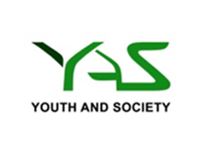 Press release
Press release
20 July Commemoration: A reminder to the Tonse administration to address governance lapses
As the country commemorates the 10th anniversary of the July 20 killings, the Centre for Human Rights and Rehabilitation (CHRR) and the Youth and Society (YAS) urge the Tonse administration to draw lessons from this unfortunate event in our country’s history, which was catalysed by dictatorial tendencies and economic hardships.
CHRR and YAS are concerned that every year politicians from both sides of the political divide attend the July 20 memorial, where they all denounce the killings, and yet very little is done to address the political and socio-economic issues that forced the citizens to take to the streets.
CHRR and YAS observe that most of the issues that compelled citizens to take to the streets on July 20, 2011 are still standing today. We wish to remind the Tonse administration that one of the issues that triggered the July 20 demos was high-level corruption and abuse of power by authorities at the time. Malawians were also angered by nepotistic tendencies by the executive, characterised by appointment of family members and friends into various government positions. To the dismay of many Malawians, corruption continues to this day and, if recent reports by Transparency International (TI) and other governance institutions are anything to go by, corruption has worsened in the last few years, despite promises by the leadership to eradicate it. Nepotism has also continued even under the new administration, as evidenced by the recent appointments of President Lazarus Chakwera’s daughter and Vice President Saulos Chilima’s mother-in-law as diplomats.
We further wish to remind the Tonse administration that another reason why people took to the streets on July 20, 2011, was to protest against the passing of bad laws. Amidst widespread public condemnation, the then Democratic Progressive Party (DPP) administration had abused its parliamentary majority to pass a number of retrogressive laws, including an amendment to the Police Act empowering the Police to search people’s houses without a warrant, and an amendment to Section 46 of the Penal Code allowing the Minister of Information to ban publications ‘deemed to be contrary to the public interest’. To the disappointment of many Malawians today, the Tonse administration is repeating the same mistake, as evidenced by the recent passing of the controversial Labour Relations (Amendment) Bill of 2021, which seeks to severely restrict worker’s right to strike. CHRR and YAS warn authorities in the Tonse administration that such blatant abuse of power and executive arrogance is a recipe for disaster.
CHRR and YAS also warn authorities against continued disregard of the observations and recommendations made by the Presidential Commission of Inquiry that was instituted to investigate the July 20 killings. Among other things, the inquiry had urged District Commissioners (CEO’s) and Chief Executive Officers (CEO’s) to avoid delay tactics when they receive notices of demonstrations. However, what we have noticed is that such delay tactics continue especially with regard to anti-government demonstrations. This regrettable and unconstitutional act has led to tensions manifested by violence during demonstrations after the notification has been granted.
The inquiry also recommended that the police should be professional by refraining from being seen as favouring the ruling side during demonstrations. Contrary to this recommendation, we have seen the police in recent demos acting more or less like a governing party military arm. The 2011 inquiry had also faulted the police on crowd management during demonstrations. However, what we have seen is that our police still has capacity challenges when it comes to crowd control, a situation that has often seen them unnecessarily firing teargas and rubber bullets against protesters.
Our call for action
In view of the above, CHRR and YAS, therefore, call upon the Tonse administration to do the following:
- Go back to the July 20 civil society petition and remind themselves of the concerns that triggered the anti-government demonstrations;
- Take immediate and effective measures to address people’s persistent concerns, including high-level corruption, nepotism and promulgation of bad laws;
- Take immediate steps to protect people’s rights to freedom of assembly, expression and association and remove all impediments to the exercise of these rights;
- Listen to the concerns of Malawians and withhold assent to the Labour Relations Act Amendment Bill;
- Compensate all remaining family members and relatives of people who were killed during the July 20 demonstrations;
- Investigate all killings related to recent protests, including the killing of Justin Phiri who died on 24 September 2019 in police custody in Mzuzu, and arrest and prosecute his killers (Phiri was among approximately 20 individuals who were arrested and charged with inciting violence during a September 19 public demonstration in Karonga);
- Arrest and prosecute all those implicated in the killing of Robert Chasowa, a student and political activist, who was found dead on the campus of Malawi University Polytechnic on 24 September 2011;
- Prosecute all police officers implicated in rape of women girls at Nsundwe, M’bwatalika and surrounding locations;
- Arrest and prosecute all those who killed police officer, Usuman Imedi, at Nsundwe;
- Update the nation on progress of the case of the petrol bombing of the UTM office in Area 24, Lilongwe, which resulted in the killing of three members of the Tambala family;
- Update the nation on progress of the case of Issa Njaunju.


Michael Kaiyatsa Charles Kajoloweka
Executive Director Executive Director
CHRR YAS
Phone: +265998895699 Phone: 0999088836
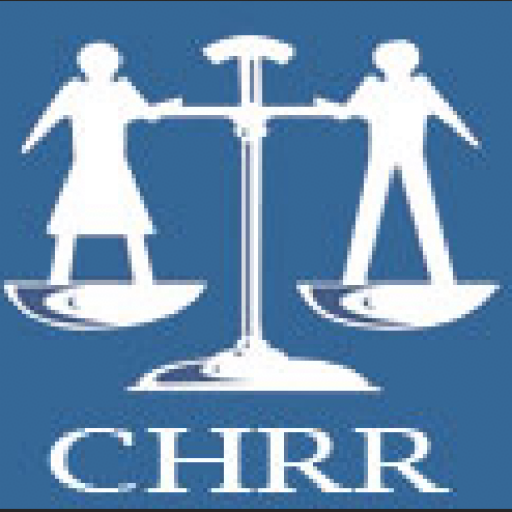
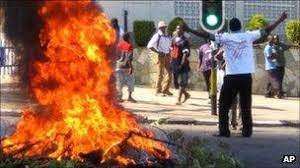
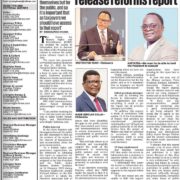
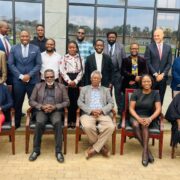





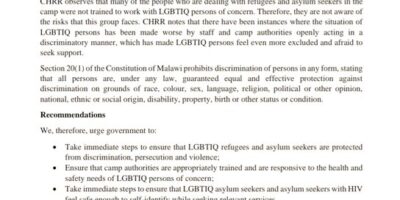


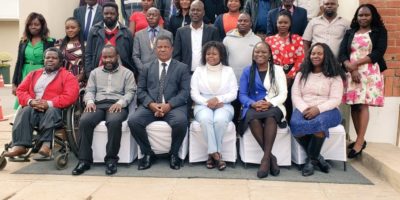




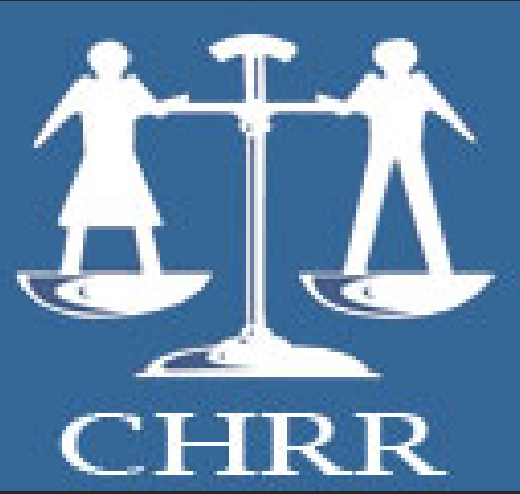



Comments